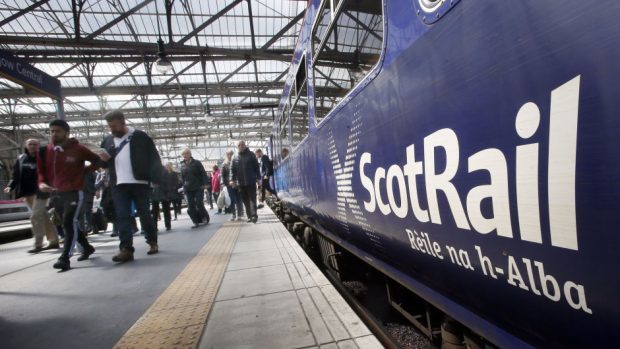Safety has been cited for power sockets being shut down on trains in the north sparking complaints of a north-south divide in customer service.
The power supply on the Wick-Inverness service, including USB computer connections, was cut to allow ScotRail to replace 240-volt sockets on the Inverness fleet of Class 158 trains as part of a wider refurbishment programme.
Due to wiring issues, certain types of USB charging leads posed a problem causing the charging equipment to fail.
ScotRail diagnosed it as “an electrical design issue” which was referred back to the manufacturer.
It took eight weeks to resolve during which time sockets were isolated “on safety grounds”.
As of earlier this week, nine sockets had been reinstated – but it is likely to be next April before all trains have a USB power facility.
Highlands and Islands Labour MSP Rhoda Grant, who is vice president of the lobbying group Friends of the Far North Line, said: “You can’t argue against actions taken on safety grounds but it makes my heart sink when I hear it’s passengers on the The Far North Line who are again being affected by the lack of those services expected as a matter of course on other routes in Scotland.
“One wonders if the situation would have dragged on so long if commuters in the central belt were deprived of power sockets for their laptops and phones.”
A spokeswoman for ScotRail said: “Due to refurbishment of the trains on the Inverness-Wick route, some issues with the power sockets were identified.
“We’re working with our refurbishment partners to get these sockets back into operation on some of the trains.
“It’s essential that these are safe for use, so until we’re satisfied of their safety they remain isolated on some of the trains.”
The inconvenience coincides with dire train timetable failings in the far north with only a quarter of trains arriving in Wick on time, according to official figures released last weekend.
The rail firm conceded that the Far North Line is among the poorest performing in Scotland, with 74.3% of trains into Wick arriving late and 56.4% arriving at Tain behind schedule.
ScotRail admitted the last few months were “challenging” but that, overall, the Scotland-wide performance figure was 90.8%, which was better than that south of the border.
